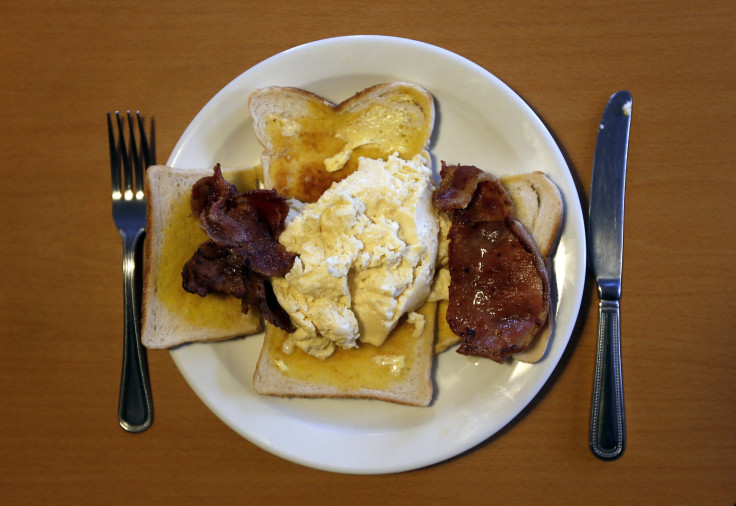Why Eating Eggs Will Help You Lose Weight

Eggs might just be your new best friend, if you’re a dieter. According to this video from Authority Nutrition, eggs are rich in proteins, healthy fats, vitamins and minerals, all which work to help you with your weight loss efforts.
The easiest way to lose weight is to reduce your overall intake, which eating low-calorie eggs has been shown to do. One large egg only has 78 calories but is nutrient-rich. A typical meal based around eggs ranges from two to four eggs.
Adding veggies to your eggs can provide a lot of food for under 300 calories, as long as you don’t load up on butter and oil. Authority Nutrition advises estimating another 50 calories for each teaspoon used. Unlike with cereal, eggs are a natural complement to vegetables, which makes for a perfect nutritional pairing to keep you full.
Speaking of full, they are high in protein, which keeps you fuller, longer. One study has shown that increasing protein intake from 15 to 30 percent of the meal’s calories leads to an overall decrease in calories consumed for the day. Studies also have shown that eating eggs for breakfast helps reduce obsessive thoughts about food by 60 percent and may also help decrease snacking at night by half.
Replacing a typical carby breakfast with eggs will magically make you feel fuller for more than a day. One study showed that women who ate eggs instead of a bagel consumed fewer calories for 36 hours. For men, the benefit lasts about 24 hours. Another study showed that people who ate eggs for breakfast lost 65 percent more weight than those who didn’t.
Cheap and easy to prepare, eggs should be a staple for every dieter. And if you’re worried about cholesterol, don’t. Research has shown that you can safely eat up to three per day.
Copyright Medical Daily News Service. All rights reserved.





















